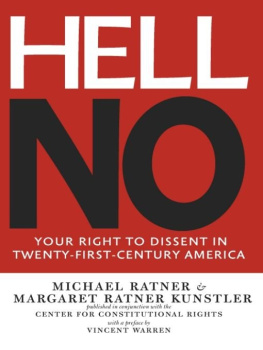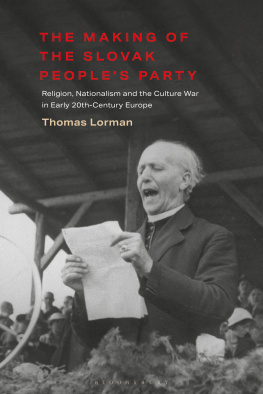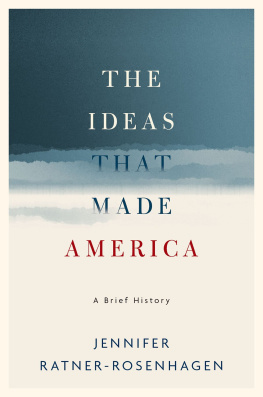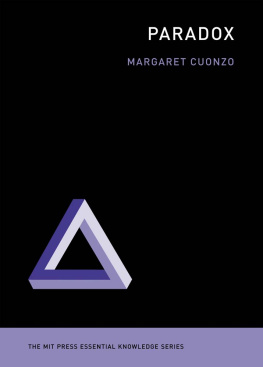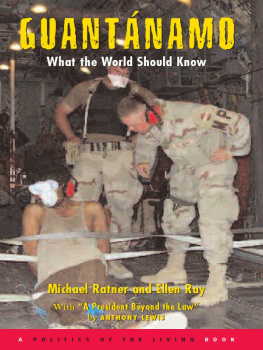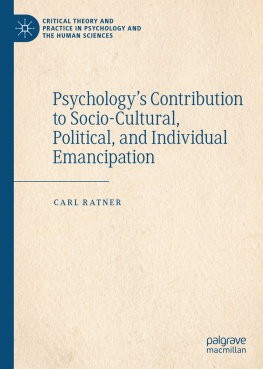Paradoxes of Prosperity

2009 by the Board of Trustees of the University of Illinois
All rights reserved
Manufactured in the United States of America
C 5 4 3 2 1

This book is printed on acid-free paper.
Library of Congress Cataloging-in-Publication Data
Ratner, Lorman A.
Paradoxes of prosperity : wealth-seeking versus Christian values in pre-Civil War America / Lorman A. Ratner, Paula T. Kaufman, and Dwight L. Teeter, Jr.
p. cm.
Includes bibliographical references and index.
ISBN 978-0-252-03453-4 (cloth : alk. paper)
1. JournalismSocial aspectsUnited StatesHistory19th century. 2. American newspapersHistory19th century. 3. American periodicalsHistory19th century. 4. Books and readingUnited StatesHistory19th century. 5. Publishers and publishingUnited StatesHistory19th century. 6. WealthSocial aspectsUnited StatesHistory19th century. 7. EthicsUnited StatesHistory19th century. 8. United StatesSocial life and customs17831865. 9. United StatesIntellectual life17831865. 10. United StatesMoral conditions.
I. Teeter, Dwight L. II. Title.
PN4864.R38 2009
071'.309034dc22 2008047506
Our virtues are the virtues of merchants, and not of men
our morals are partial, and therefore barren.
HENRY W. BELLOWS
For the grandchildren of Larry Ratner and Paula Kaufman: Nina, Amanda, Will, McKenzie, Logan, and Taylor
And for Letita Teeter and her grandson, Jonathan
Contents
Foreword
This book is the idea of Professor Lorman Larry A. Ratner, emeritus professor of history at the University of Tennessee, Knoxville, and, from 19992007, adjunct professor of history at the University of Illinois, Urbana-Champaign. While editing the manuscript, Professor Ratner died of a heart attack on July 14, 2007, just a few days before his seventy-fifth birthday. Although my name may appear in connection with this book, Larry Ratner did the lions share of the research and writing. As I view this book, it is 60 percent the work of Professor Ratner, 20 percent the work of his wife, Paula Kaufman, university librarian and dean of libraries of the University of Illinois, Urbana-Champaign, and perhaps 20 percent the work of the undersigned Dwight Teeter.
Recently, Dr. Ratners scholarship focused increasingly on the press of mid-nineteenth-century America, adding to his long-standing interests in multiculturalism, civil rights, nineteenth-century politics and social movements, and American cultural history. His books include Antimasonry: The Crusade and the Party; Andrew Jackson and His Tennessee Lieutenants; Powder Keg: Northern Opposition to the Antislavery Movement, 18311840; PreCivil War Reform: The Variety of Principles and Programs; The Development of an American Culture (with Stanley Coben); Multiculturalism in the United States (with John Buenker); James Kirke Paulding: The Last Republican; and Fanatics and Fire-Eaters: Newspapers and the Coming of the Civil War (with Dwight Teeter).
Larry Ratner was dean of the College of Arts and Sciences at Tennessee from 1986 to 1996, where he played a major role in changing the university to a research campus. He returned to the classroom in 1996 to teach history full time. He taught there until 1999, when he and Paula moved to the University of Illinois, Urbana-Champaign. His integrity was reflected in his scholarship. His wide-ranging knowledge of civil rights issues and his insistence on multicultural fairness were apparent in his work as a dean at Tennessee and also characterized his earlier career, as a faculty member and administrator at Lehman College, at City University of New York, as vice chancellor for academic affairs at the University of WisconsinParkside, and as chancellor of the University of Wisconsin Centers (now UW Colleges).
As a journalism historian who served with Larry as a dean at Tennessee, from 1991 to 1996, it was my great pleasure to continue my conversations with my wise and witty ally thereafter, working on two books while our friendship grew even stronger. This book, which shows, among other things, his wide-ranging knowledge of nineteenth-century American literature, religion, and culture, is a final conversation with an accomplished American historian named Lorman A. Ratner.
Dwight L. Teeter Jr.
Knoxville, Tennessee
July 31, 2008
Acknowledgments
Kim Matherly, administrative assistant at the University of Illinois libraries, provided superb research and manuscript-vetting help. The authors are greatly in her debt. University of Tennessee Special Collections Librarians Elizabeth G. Dunham (Webmaster), William B. Eigelsbach, and Nick Wyman also provided knowledgeable and indispensable assistance. The authors benefited greatly from the wise suggestions of two admirable historians, O. Vernon Burton, emeritus university distinguished teacher/scholar and professor of history, African-American studies and sociology, University of Illinois at Urbana-Champaign, and Edward Caudill, professor of journalism and electronic media, University of Tennessee.
Paradoxes of ProsperityIntroduction
Overshadowed by the Civil Warand the more than 50,000 books written about itthe cultural life of the United States in the 1850s often seems to be remembered only as a prelude to the great divide in American history. As that decade passed, the paradox of a nation conceived in liberty but permitting and even celebrating slavery was crucial in the breaking up of the American union. This book takes up another major theme in American cultural life of that decade, a widespread and intense concern about the conflict between financial success and righteousness. The prosperity-morality paradox is the subject of this study.
Our first book about that decade, Fanatics and Fire-Eaters, dealt with political warfare in newspapers reporting and commentary on a series of events, upsetting the national equilibrium with overheated words about a series of tinderbox events. Newspapers shrill and strident words about the caning of antislavery Senator Charles Sumner of Massachusetts in May 1856 and about the Dred Scott decision of the Supreme Court of the United States in March 1857 helped habituate readers to North-South vituperation. As if in a horrifying echo chamber, other divisive events followed: debates over the Lecompton Constitution for Kansas in the winter of 1857; John Browns raid at Harpers Ferry, Virginia, in the fall of 1859; Abraham Lincolns election in November 1860; and the firing on Fort Sumter in April 1861.
Reading what a large number of Americans read in their newspapers of the 1850s to see what Americans were reading about Northern Fanatics and Southern Fire Eaters, it became clear that there was another problem commanding Americans attention: the stresses prosperity put on morality. While popular written work consulted for this book contained many references to sectional tensions and the reasons for them, the prosperity-morality paradox was part of the social context. This paradox, a less focused but deeply felt concern, was broader than sectional political tensions. And, to some large if indeterminate number of Americans of the time, it was every bit as immediate and pressing. Using newspapers, magazines, and books as their outlets, writers identified and dramatized the troubling paradox.



 This book is printed on acid-free paper.
This book is printed on acid-free paper.

